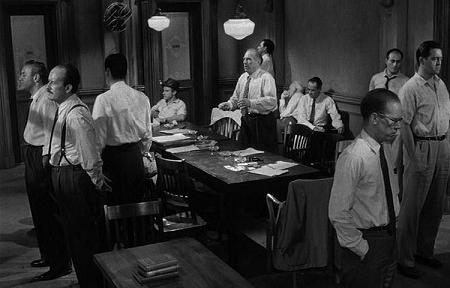
 |
| Photo © 1957 United Artists/Orion-Nova Productions |
| Academy Award Nominations: | |
| Best Picture | |
| Best Director: Sidney Lumet | |
| Best Adapted Screenplay: Reginald Rose | |
| Golden Globe Nominations: | |
| Best Picture (Drama) | |
| Best Director: Sidney Lumet | |
| Best Actor (Drama): Henry Fonda | |
| Best Supporting Actor: Lee J. Cobb | |
| Other Awards: | |
| Berlin Film Festival: Golden Bear (Best Picture); OCIC Award | |
| Writers Guild of America: Best Written American Drama | |
| British Academy Awards (BAFTAs): Best Foreign Actor (Fonda) | |
| Permalink | Home | ABC | Blog |